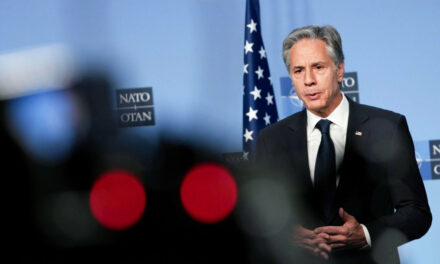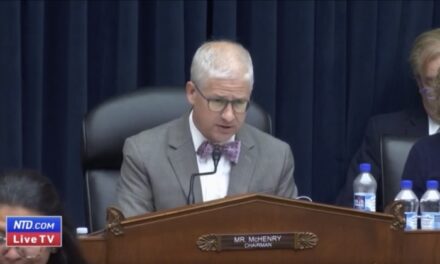We support our Publishers and Content Creators. You can view this story on their website by CLICKING HERE.
John Nassif of Florida was convicted of four misdemeanor counts in connection to the breach at the U.S. Capitol and received a 7-month prison term.
The U.S. Supreme Court on Tuesday declined to consider a challenge to a misdemeanor charge that was used to target Jan. 6, 2021, defendants for parading at the U.S. Capitol.
Nassif, of Florida, was convicted of four misdemeanor counts in connection to the breach at the Capitol and received a 7-month prison term, according to the Department of Justice (DOJ).
He appealed the “parading, picketing, and demonstrating” count, which was used to charge numerous other individuals arrested by federal officials in connection to the breach, according to the DOJ.
Nassif, the judges wrote at the time, “has not established that the Capitol buildings are, by policy or practice, generally open for use by members of the public to voice whatever concerns they may have—much less to use for protests, pickets, or demonstrations.”
“Because Nassif has not shown that the Capitol buildings are a public forum, the challenged provision need only be reasonable in light of the government’s interest in undisturbed use of the Capitol buildings for their legislative purposes,” the circuit court judges said. “We conclude that the prohibition is reasonable and that it clearly applies to Nassif’s conduct, so we reject his facial challenges and affirm the conviction.”
“The overbreadth of the law was a concern from the start,” Fussell wrote, noting that the law was passed in 1967 during the Civil Rights movement.
While the law “has been used against hundreds of January 6 defendants who clearly violated the larger statutory scheme,” its origin “can be traced, at least in part, to a desire to silence particular viewpoints,” his petition stated.
“A peaceful sit-in by the Freedom Democratic Party of Mississippi—the group supported by Dr. Martin Luther King Jr. and formed during Freedom Summer—was cited as a reason such far-reaching legislation was needed to ‘protect the Capitol.’”
Nassif’s lawyer argued that it was unconstitutional when it was passed in 1967 and “remains unconstitutional today.”
President-elect Donald Trump has vowed to pardon some individuals who were convicted of Jan. 6-related crimes.
Trump himself was charged last year by special counsel Jack Smith on charges related to the events of Jan. 6, 2021, and alleged efforts to overturn the 2020 election. Trump has pleaded not guilty to the charges, saying they were politicized attempts to interfere with the 2024 election.
A federal judge last week approved a request from Smith’s team to vacate pretrial dates related to the case following Trump’s election win, months after the Supreme Court ruled that presidents have broad immunity for their official acts and duties.
The Epoch Times contacted Fussell, Nassif’s attorney, for comment on Tuesday but received no reply by publication time.

 Conservative
Conservative  Search
Search Trending
Trending Current News
Current News 







